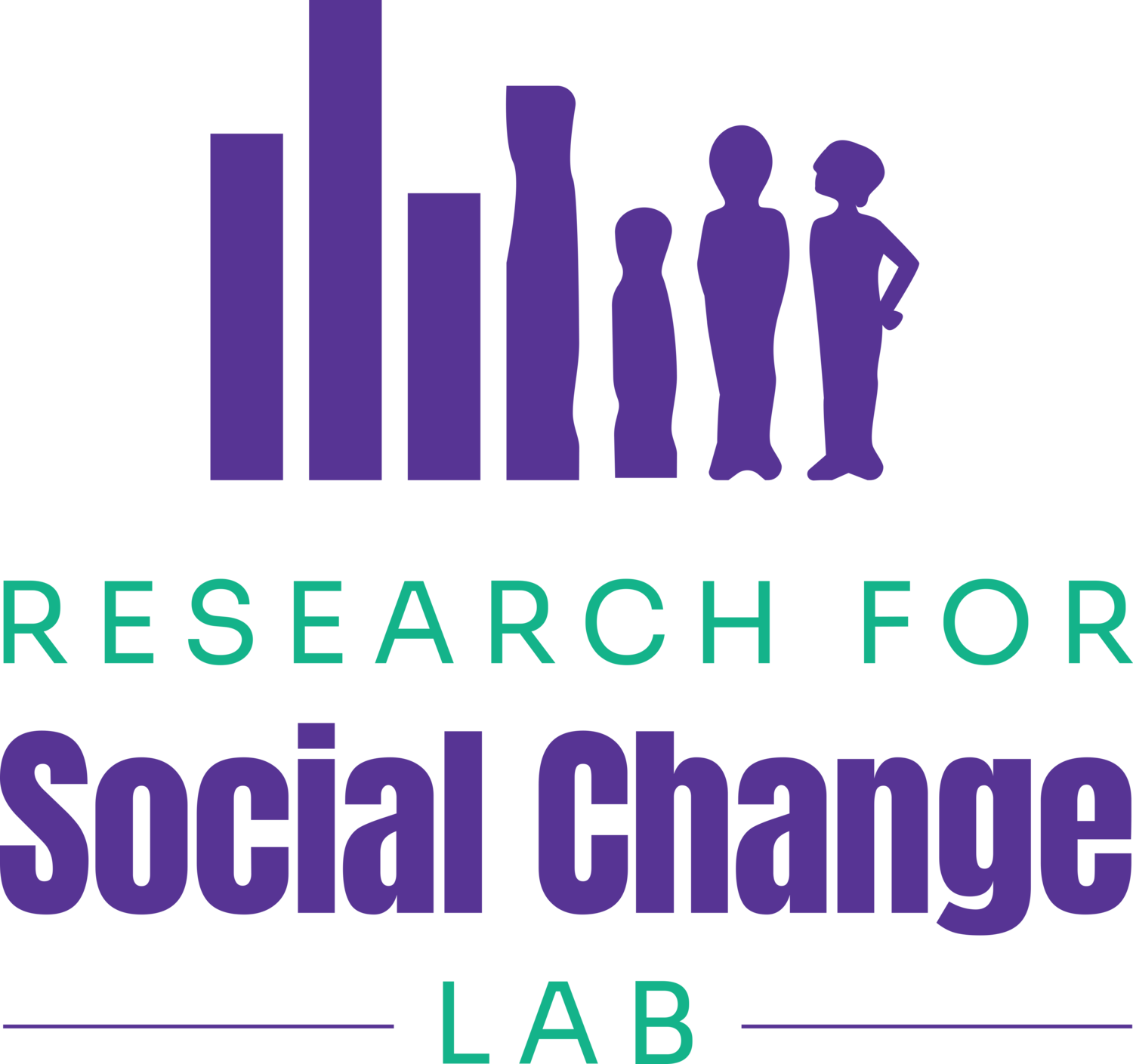Data Justice Symposium Report
After the Data Justice Symposium that took place on February 21st, 2025, the organising committee (Reem Ali/City of Peterborough, Yvonne Lai/The New Canadians Centre, Dr. Stephanie Rutherford/Trent University, and Dr. Naomi Nichols and Dr. Collin Chepeka/The Research for Social Change Lab), with design help from Justine Williams, drafted a report summarising the day. The executive summary of the report can be found below, along with a link to the full report.
Executive Summary:
On February 21, 2025, Reem Ali of the City of Peterborough, Yvonne Lai of the New Canadians Centre, Dr. Stephanie Rutherford of Trent University’s School of the Environment, Dr. Naomi Nichols and Dr. Collin Chepeka of the Research for Social Change Lab hosted a local data justice symposium at Trent University, bringing together community and municipal organizations to explore data-related needs and challenges in the region. The symposium aimed to share the findings of a local social data audit, build local capacity to address gaps revealed in the audit, and generate ideas for overcoming social justice data challenges faced by organizations. A key focus was fostering collaboration between institutions with similar data needs, enhancing shared data infrastructure, and connecting organizations with students from Trent’s Applied Modelling and Quantitative Methods (AMOD) program to assist with data collection, analysis, and processing. Attendees also engaged with local data leaders to learn from past data initiatives, with the goal of leveraging successful practices to advance collective efforts moving forward.
The symposium began with a keynote panel featuring Christian Harvey from OneCity Peterborough, Nancy Fischer from the United Way, and Jane Hoffmeyer from Peterborough Public Health, who emphasized the importance of data in social justice, advocacy, and public health. Harvey highlighted data's role in advocating for shelter capacity but cautioned about the risks of over-relying on data, urging that it be paired with action. Fischer stressed the need for cross-sector collaboration, informed consent in data collection, and using data to drive actionable outcomes. Hoffmeyer focused on the intersection of data, social justice, and health, sharing her experiences with Indigenous communities to demonstrate how data empowers and informs funding decisions.
Following the keynote, Nisarg Patel presented the results of the "Data Audit for Social Justice in Peterborough," which identified several data management challenges, such as fragmented data systems, gaps in demographic reporting, and limited resources for data collection. These issues were exacerbated by inconsistent data definitions and lack of coordination between sectors.
The event featured group discussions on how to address these challenges through better data governance, ethical practices, and resource-sharing. Sessions also highlighted how Trent University's resources, including the AMOD program, the Trent Community Research Centre (TCRC), and the Master's in Management program, could help address local organizations' capacity issues.
The day concluded with the announcement of the Switchgrass Network; an initiative aimed at creating an online database to help community members access services more efficiently. Moving forward, attendees emphasized the importance of creating a Community of Practice to establish standards for ethical data collection and sharing that respects the lived experiences of individuals as well as expressed their desire for another data justice symposium.


